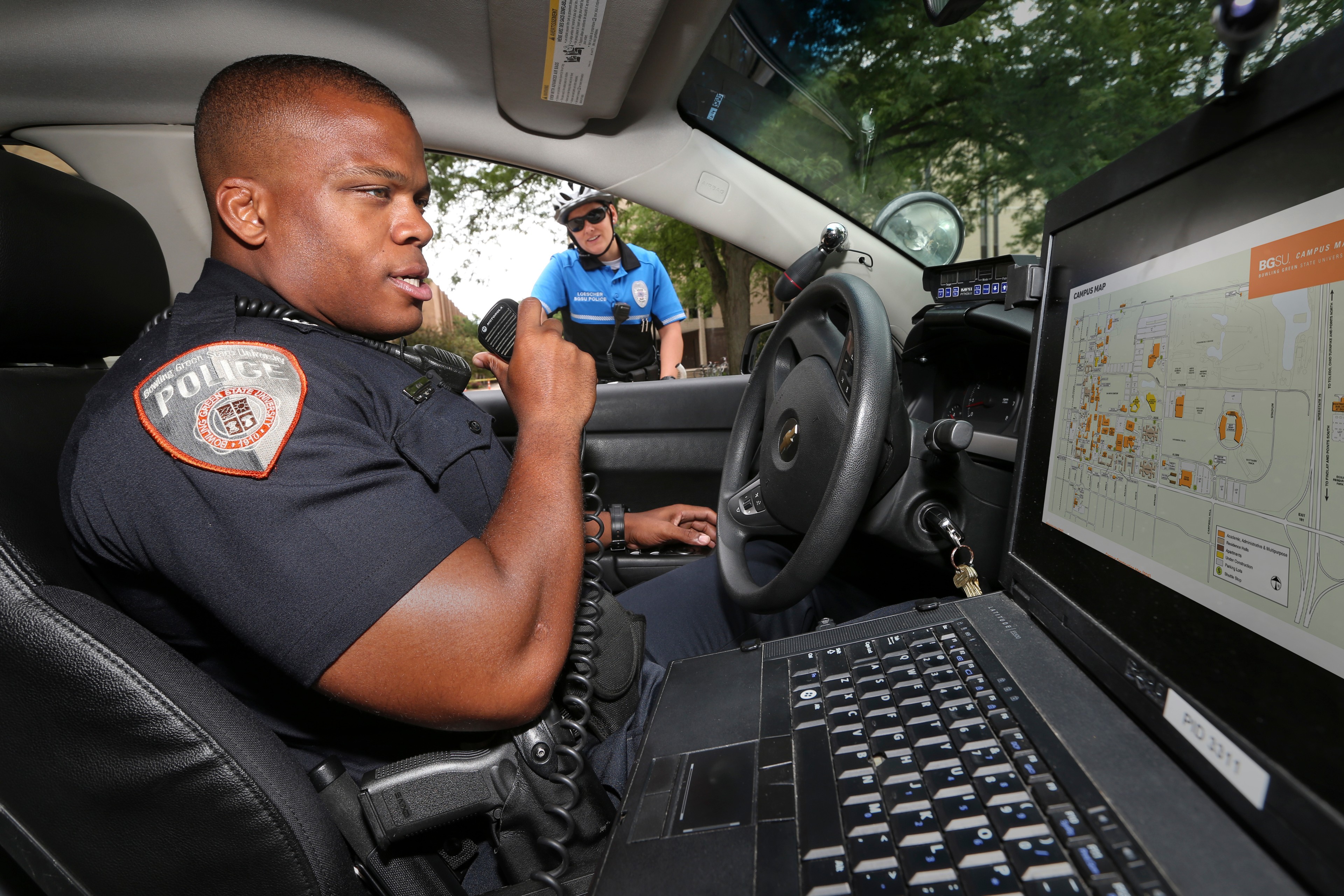Nationally recognized for student experience
The Wall Street Journal

Doctorate
Media and Communication
We are living in an era of rapid technological advancement and growing global interconnection. The need for advanced communication scholars who can help us understand and influence how ideas move through society has never been greater.
The Ph.D. in media and communication at Bowling Green State University develops the next generation of media and communication scholars and thought leaders. Our doctorate degree in communications combines rigorous research training with critical analysis of the media’s role in shaping identity, politics and public discourse.
You’ll investigate how communication creates, challenges and transforms social realities across cultures and platforms through interdisciplinary exploration and advanced methodology.
Choose your specialization:
- Critical media studies and rhetoric
- Interpersonal communication
- Media audiences and processes
The School of Media and Communication houses one of the nation’s most innovative communication Ph.D. programs. Graduates with this Ph.D. in communications become influential voices in academia, media industry, policy development and corporate leadership.
Program highlights
- Outstanding faculty. Our distinguished faculty offers exceptional instruction and mentorship. They also advance the field of communications studies through nationally-recognized research in areas like intercultural communication, political rhetoric, health communication and media effects.
- Rigorous, interdisciplinary curriculum. Engage in a balance of theoretical, methodological and applied coursework that prepares you for academic, research and leadership roles.
- Flexible electives to support your goals. Customize your path to a Ph.D. in communications with elective courses that complement your emphasis area and expand your interdisciplinary understanding.
- Financial support. Competitive graduate assistantships and funding packages are available to support teaching, research and professional development for doctoral students.
- Global research leader. The BGSU Global Social Media Influencer Research Lab unites scholars from more than a dozen nations through dynamic speaker series and collaborative studies. The lab examines how digital influencers drive change across marketing, political discourse and social movements worldwide.
- Collaborative learning environment. Join a vibrant cohort of doctoral students with diverse interests. You are supported by a program that values academic community, connection and shared inquiry.
- Exceptional graduate placement record. Alumni hold faculty positions, research roles and executive communication positions across the country in higher education, government and private sectors.
#1 public university in Ohio for career prep
The Wall Street Journal
Career opportunities
Graduates of the Ph.D. program in media and communication at BGSU are prepared for a wide range of dynamic and impactful careers.
Many alumni pursue tenure-track positions at universities and colleges across the U.S. and abroad. They teach and conduct research in communication, media studies, public relations and related fields.
Others find success in applied research roles with think tanks, government agencies, nonprofit organizations and in the corporate world, where community strategy, audience analysis and media literacy are critical.
This doctorate degree in communications also opens doors to leadership positions in higher education, administration, public affairs, advocacy and digital media consulting. Graduates of this terminal degree program receive strong theoretical grounding and advanced methodological training. They are equipped to shape the future of communication scholarship and practice in a constantly-shifting media landscape.
Career paths
- University professor/researcher
- Strategic communications consultant
- Media policy analyst
- Public relations and marketing executive
- Health and risk communication specialist
- Nonprofit advocacy leader
- Digital media scholar/analyst
Quick Facts from the Bureau of Labor Statistics
Curriculum
The curriculum of the Ph.D. in media and communication at BGSU is designed to provide students with a deep, interdisciplinary foundation in communication theory, research methods and specialized areas of study.
Doctoral students complete a minimum of 64 credit hours. The curriculum includes:
- Core courses in media and communication theory
- Qualitative and quantitative research methodologies
- Courses that strengthen analytical skills
Each student selects one of three areas of emphasisto shape their scholarly focus and guide their dissertation research:
- Critical media studies and rhetoric
- Interpersonal Communication
- Media Audiences and Processes
Elective coursework allows for further specialization and interdisciplinary exploration. Close faculty mentorship ensures that each student’s academic path aligns with their research interests and career goals.
Overall, the curriculum emphasizes not only intellectual rigor, but real-world relevance. We prepare graduates to make meaningful contributions to academia and industry.

Sample courses
- Critical Media Studies
- Communication Pedagogy: Preparing Future Faculty
- Interpersonal Communication
- International Media
- Relational Communication
- Persuasion
- Mass Communication Theory
- New Media Research Seminar
#1 university in Ohio – big or small, public or private – students would choose again
The Wall Street Journal
The media and communication Ph.D. program is part of the School of Media and Communication in the College of Arts and Sciences.
Accreditation
Bowling Green State University [BGSU] is accredited by the Higher Learning Commission. BGSU has been accredited by the Higher Learning Commission since 01/01/1916. The most recent reaffirmation of accreditation was received in 2022-2023, with our next reaffirmation of accreditation scheduled for 2032-2033. Questions should be directed to the Office of Institutional Effectiveness.
Request Information
Updated: 11/25/2025 02:32PM

